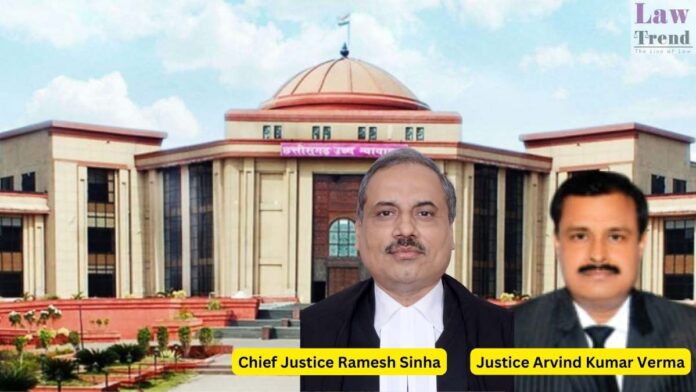A Division Bench of the Chhattisgarh High Court comprising Chief Justice Ramesh Sinha and Justice Arvind Kumar Verma has dismissed the criminal appeal filed by Ritesh @ Pappu Manjhi, affirming his conviction and sentence of life imprisonment for kidnapping and raping a seven-year-old girl. The Court reiterated that the credible and reliable testimony of the
To Read More Please Subscribe to VIP Membership for Unlimited Access to All the Articles, Download Available Copies of Judgments/Order, Acess to Central/State Bare Acts, Advertisement Free Content, Access to More than 4000 Legal Drafts( Readymade Editable Formats of Suits, Petitions, Writs, Legal Notices, Divorce Petitions, 138 Notices, Bail Applications etc.) in Hindi and English.




